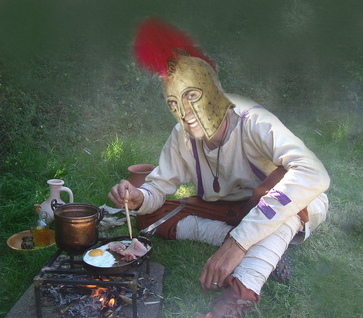Hello all, Prof Brian Cox here, and once again I am using my unrivalled intelligence to improve your humdrum lives. I have recently been asked by many of my celebrity fans, such as Meryl Streep and Zoe Ball, as to why do “the clocks change” in Autumn and Spring. The answer is, like so many of today’s conundrums steeped in mystery, but I can tell you now that once again it’s down to our old friends the Romans.
We have to go back to 103BC when the Roman’s lust for entertainment was at it’s height, and audiences we were especially keen on timed gladiatorial fights. The only problem was no one could actually time them as time itself was yet to invented. The promise of time had been bandied about about for centuries ever since a Greek had mentioned it in passing, but no one could actually define it. The roman people were growing restless and wanting to pacify them Roman Emperor Julius Timius demanded that someone invent time and set it as a competition. Many scientists and philosophers tried and failed, but one day a lowly scribe, Minitus Hourius, noted that maybe time could be described as “the duration between the sun rising and setting”, and “that if divided into smaller bits such as hours and minutes things could at last be timed.” Through trial and error over many months it was found that daylight could be divided into 12.03 hours with each hour being roughly 60 minutes long (the 24 hour day and seconds would not be invented for another 200 years). At last citizens could time gladiator battles and were very happy, young Minitus was even given his own chariot as way of thanks … but a few years later unrest returned. Because the daylight hours weren’t exactly 12 hours long every six months there was a whole spare hour left over that no one knew what to do with (hence the expression “to have time on your hands”). Once again it was our friend Minitus who came good and his solution was to put the clocks backwards in Autumn, and to maintain decorum, forward in the Spring. A tradition that continues to this day.
So there you go, another Did You Know This fact complete. I’m off to play dominoes with my old friends Morrissey and Sir Bruce Forsyth, but i’ll see you soon no doubt. Thanks, Prof Brian Cox.
(Above) Prof Brian Cox polishing his clocks before turning back time earlier today




